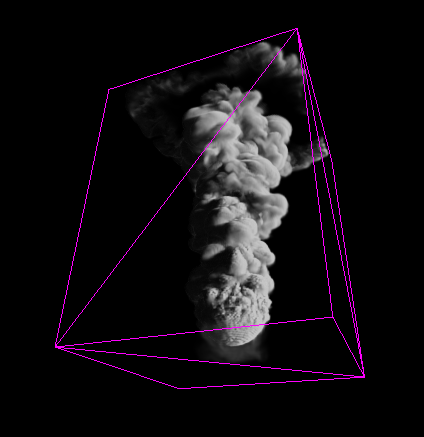This page provides information on the Phoenix software development kit (SDK).
Overview
Phoenix FD SDK is included with the installation of Phoenix FD for Autodesk® 3ds Max® and provides a C++ API in for interfacing with simulation cache files.
Installation
Phoenix FD SDK is normally installed in "C:\Program Files\Chaos Group\Phoenix FD\3ds Max NNNN for x64\SDK" where NNNN is the version of 3ds Max (2017, 2016, etc).
Structure
The Phoenix FD SDK includes the following folders:
- \include – Contains the header files needed to interface with Phoenix FD SDK.
- \lib – Contains the Phoenix FD SDK binaries for both static and dynamically linked versions of the Phoenix FD SDK.
- \samples – Contains example projects that use Phoenix FD SDK.
Using Phoenix FD SDK
Phoenix FD SDK is provided as a static and dynamic library. Depending on your project, you may pick the static or dynamic version of the library. Usually the dynamic version is preferred when there is a dependency to any version of V-Ray SDK, as Phoenix FD SDK depends on vutils_s.lib.
Using Phoenix FD SDK as a static library requires:
- \lib\aurloader_s.lib and \lib\vutils_s.lib to be added as an additional dependency to the linker.
Using Phoenix FD SDK as a dynamic library requires:
- AURLOADER_DYNAMIC_LIB to be added the compiler settings as a preprocessor definition.
- \lib\aurloader.lib to be added as an additional dependency to the linker.
- \lib\aurloader.dll to be available at run time to the executable linked to \lib\aurloader.lib
Depending on the version of 3ds Max and the version of V-Ray, Phoenix FD SDK is built with the respective version of Microsoft Visual C++ Runtime:
| Host Application | C++ Platform Toolset for V-Ray 3 | C++ Platform Toolset for V-Ray Next |
|---|---|---|
Autodesk® 3ds Max® 2015 Autodesk® 3ds Max® 2016 Autodesk® 3ds Max® 2017 | vc11 | vc14 |
Autodesk® 3ds Max® 2018 Autodesk® 3ds Max® 2019 Autodesk® 3ds Max® 2020 | vc14 | vc14 |
With "/MD" Runtime Library flag.
Samples
Phoenix FD SDK comes with two code sample projects: GridView and CSVParticles.
Prerequisites:
The project uses CMake for generating project files. Additionally the following third party libraries have been used:
GLEW (http://glew.sourceforge.net/)
GLFW (http://www.glfw.org/) Tested with GLFW Version 3.0.4.
Zlib (http://www.zlib.net/). Needed if static version of Phoenix FD SDK is being used.
See the License Agreements and Copyrights page for copyright notices.
Here is an archive containing those libraries: external_libs
Note: This is just a collection of the libraries as we downloaded them from their respective official sites. We don't take any responsibility for the way the actual libraries work or affect your PC.
GridView
GridView is a simple smoke rendering implemented in OpenGL. it is located in the \samples\GridView directory.
Prerequisites:
In order to build this sample, all external libraries must be located in a GridView/external_libs.
Build steps:
- Place all external libraries in GridView/external_libs
- Use CMake to generate project files that best suite you needs. Please take in account the C++ Platform Toolset that is used by your version of Phoenix FD SDK. See the Using Phoenix FD SDK section.
- Set PHOENIX_SDK_DIR to Phoenix FD SDK, for example "C:\Program Files\Chaos Group\Phoenix FD\3ds Max NNNN for x64\SDK".
- Generate the project files and build.
CSVParticles
CSVParticles exports particle groups stored in Phoenix FD *.aur files to *.csv recognized by Thinkbox Krakatoa™ (http://www.thinkboxsoftware.com/krak-csv-file-format/).
Prerequisites:
In order to build this sample, all external libraries must be located in a CSVParticles/external_libs.
Build steps:
- Place all external libraries in CSVParticles/external_libs
- Use CMake to generate project files that best suite you needs. Please take in account the C++ Platform Toolset that is used by your version of Phoenix FD SDK. See the Using Phoenix FD SDK section.
- Set PHOENIX_SDK_DIR to Phoenix FD SDK, for example "C:\Program Files\Chaos Group\Phoenix FD\3ds Max NNNN for x64\SDK".
- Generate the project files and build.

